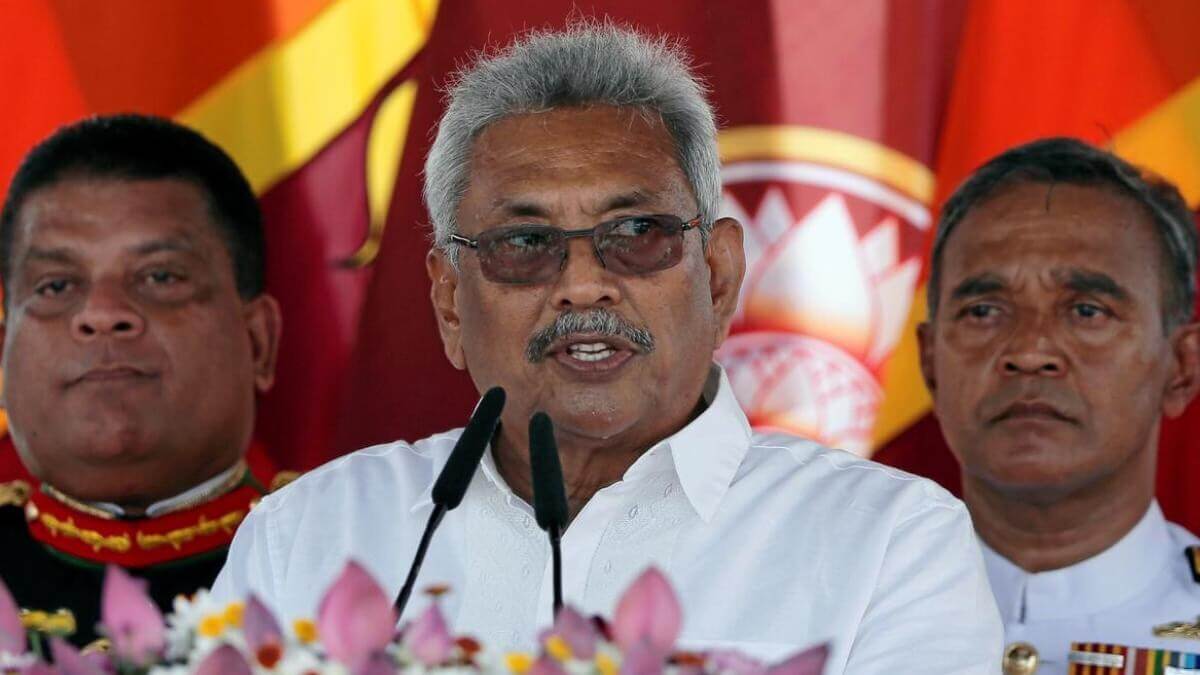On Wednesday, in what is seen as a significant victory for Sri Lankan President Gotabaya Rajapaksa, the Parliament voted to pass the controversial 20th Constitutional Amendment, which aims to increase the power of the President. Following a two-day debate, 156 of the House’s 225 members voted in favour of the Bill. The Amendment seeks to nullify changes made by the previous administration through the 19th Amendment, implemented by Rajapaksa’s predecessor Maithripala Sirisena, which reduced the President’s powers, distributing it between the Parliament and independent commissions.
Earlier in August, Gotabaya was brought back to power following his decision to dissolve the opposition-controlled Parliament six months ahead of schedule. While, his vision to expedite the parliamentary elections was obstructed by the onset of the COVID-19 pandemic, which led to two postponements, he secured 145 out of the 225 seats. This was merely five seats less than the majority required to pass any constitutional amendment in the Parliament. The campaign was driven by the desire to increase the President’s powers in Sri Lanka. Gotabaya has often expressed his inability to work freely due to the restrictions on his power caused by the 19th Constitutional Amendment. The “super-majority” was secured by the Rajapaksa brothers despite complaints of “authoritarianism and dominance.”
The new Amendment allows the President to hold ministries, appoint and fire ministers and determine the constitution of commissions on “elections, public service, police, human rights and bribery or corruption.” Previously, commissions were appointed in consultancy with a constitutional committee that consisted of members of opposition parties and stakeholders representing the civil society. Another controversial provision that features in the final version of the Bill is one that lifts the ban on individuals with dual citizenship from holding a position in political offices. This is being criticised for paving the way for Rajapaksa to further concentrate power to members of his family, with Basil, his brother who holds American citizenship, now being allowed to hold a position in the Parliament. Already, the Rajapaksa government has five members from Gotabaya’s family as legislators.
The Amendment faced significant criticism from opposition parties and Buddhist clergies who believe that the Bill provides overreaching powers to the President. Consequently, the opposition, through 39 petitions, approached the country’s Supreme Court to challenge the Bill. While the court upheld the constitutionality of the Bill, it held that specific provisions, including those that gave the Parliament extensive powers on the delimitation of electoral districts, would require a referendum as they were against the principles of public sovereignty enshrined in the Constitution. The Bill that was passed on Wednesday excluded these provisions.
Sri Lankan Parliament Passes Controversial Bill Expanding President’s Powers
On Wednesday, in what is seen as a significant victory for Sri Lankan President Gotabaya Rajapaksa, the Parliament voted to increase the powers of the President.
October 23, 2020

SOURCE: INDIA TODAY
